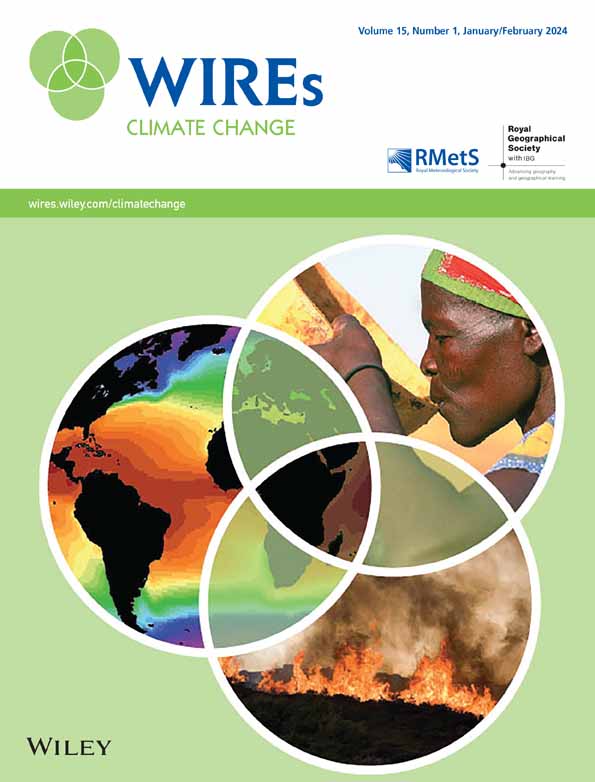Deliberative democracy and the climate crisis
IF 10.3
1区 环境科学与生态学
Q1 ENVIRONMENTAL STUDIES
引用次数: 44
Abstract
No democratic state has yet implemented a climate plan strong enough to meet the goals of the Paris Agreement. This has led some to argue that democracy cannot cope with a challenge of this magnitude. In this article, we take stock of the claim that a more deliberative democratic system can strengthen our ability to respond effectively to the climate crisis. The most visible development in this direction is the recent citizens’ assemblies on climate change in Ireland, France, and the UK. We begin our analysis of the promise of deliberative democracy with a recognition of the difficulties that democracies face in tackling climate change, including short‐termism; the ways in which scientific and expert evidence are used; the influence of powerful political interests; and the relationship between people and the politicians that represent them. We then introduce the theoretical tradition of deliberative democracy and examine how it might ameliorate the challenges democracies face in responding to the climate crisis. We evaluate the contribution of deliberative mini‐publics, such as citizens’ assemblies and juries, and look beyond these formal processes to examine how deliberation can be embedded in political and social systems around the world. We conclude that deliberation‐based reforms to democratic systems, including but not limited to deliberative mini‐publics, are a necessary and potentially transformative ingredient in climate action.协商民主和气候危机
目前还没有一个民主国家实施了足以实现《巴黎协定》目标的气候计划。这导致一些人认为,民主无法应对如此巨大的挑战。在这篇文章中,我们评估了一种说法,即更审慎的民主制度可以增强我们有效应对气候危机的能力。这方面最明显的进展是最近在爱尔兰、法国和英国举行的关于气候变化的公民大会。在分析协商民主的前景时,我们首先认识到民主国家在应对气候变化方面面临的困难,包括短期主义;使用科学和专家证据的方式;权势:强大的政治利益的影响;以及人民和代表他们的政治家之间的关系。然后,我们介绍了协商民主的理论传统,并研究了它如何改善民主国家在应对气候危机时面临的挑战。我们评估了审议微型公众的贡献,如公民大会和陪审团,并超越这些正式程序来研究审议如何嵌入世界各地的政治和社会制度。我们的结论是,以审议为基础的民主制度改革,包括但不限于审议微型公众,是气候行动中必要的、潜在的变革因素。
本文章由计算机程序翻译,如有差异,请以英文原文为准。
求助全文
约1分钟内获得全文
求助全文
来源期刊

Wiley Interdisciplinary Reviews: Climate Change
METEOROLOGY & ATMOSPHERIC SCIENCES-
CiteScore
20.00
自引率
2.20%
发文量
58
审稿时长
>12 weeks
期刊介绍:
WIREs Climate Change serves as a distinctive platform for delving into current and emerging knowledge across various disciplines contributing to the understanding of climate change. This includes environmental history, humanities, physical and life sciences, social sciences, engineering, and economics. Developed in association with the Royal Meteorological Society and the Royal Geographical Society (with IBG) in the UK, this publication acts as an encyclopedic reference for climate change scholarship and research, offering a forum to explore diverse perspectives on how climate change is comprehended, analyzed, and contested globally.
 求助内容:
求助内容: 应助结果提醒方式:
应助结果提醒方式:


